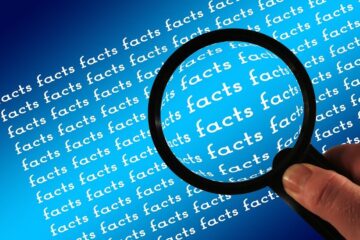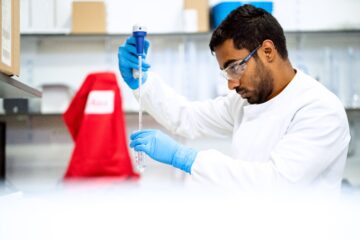![]()
Introduction:
Forensic science is the branch of science involved in the collection, investigation of the crime scene, medical examination of the evidence, Interpretation of medical evidence and assessment of the evidence that are traced from the crime scene and submitting its report in form of opinions from experts specialised to the adjudicatory bodies without any third party interference. The medical jurisprudence plays a key role in determining a true picture of the incident that how a person may have sustained injury marks and factors determining the death.
Also, the Forensics works on the recreation of the crime scene through which it is easy to determine a true picture of the actual incident and also it narrows down the inference of the crime scene, what may have happened, this not only gives an understanding but also helps in proceeding further with the investigation.
The major scientific tests generally applied for investigation of the crime scene are:
- DNA Test
- Polygraph Test
- Narco analysis Test
Forensic Science and Law
Any procedural law is enacted to make justice available to the aggrieved, any act which hinders the basic right of individuals leads to a dispute and to culminate the disputed issues whether it is civil or criminal, adjudication is required and to decide any issue there lies a need of an Evidence. Sec-3, of Indian Evidence Act defines Evidence as:
- The statements made by the witnesses concerning matters of fact as oral evidence;
- Documents along with electronic records presented for the scrutiny of the Court as documentary evidence[1].
There can be situations where it is difficult for the court to adjudicate an issue as it requires specialised knowledge when the court is of opinion that in the interest of justice, an expert opinion is required, the court may call for an expert to substantiate the evidence rendered by the parties.
DNA Test
DNA (deoxyribonucleic acid) is a unique hereditary genetic code of an Individual determining the characteristics of a living, it is such a special structure which can only be passed on by the parents, it is impossible to have same DNA in two different people unless there exists an identical twin. DNA testing or DNA profiling is a test of identification of an individual. For the purpose of identification, this test is used in the criminal dispute as well as a civil dispute, while in criminal cases to identify the accused physical sample of semen, blood, hair strand is taken and matched to the DNA profile of the victim and in civil cases, the purpose for the test is to establish the relationship among the family members.
Test in civil cases
In civil disputes, to establish hereditary relation the test is used. Under Section- 112 of the Indian Evidence Act, in which the child legitimacy is established by the fact that any person was born during the binding marriage between his mother and any man, or within 280 days after the dissolution of marriage if the mother remained unmarried it shall be definitive that he is the true son of that man unless it can be proved that the parties had no access to each other at any time when he could have been fathered[2] but if it is shown that by the evidence that even after 280 days the child born is not from the same genetic line, the court to end the conflict of interest allows for the DNA Test but in some cases, it has been seen that Court see this as an infringement of personal rights of the individual and denies to allow it.
In Goutam Kundu v. State Of W. B. & another[3], the court concluded that:
- The Courts cannot order a blood test,
- Wherever applications are filed making prayer for the same cannot be entertained.
- There must be strong evidence presented by the husband so to revoke the presumption under sec- 112 Indian Evidence Act.
- The court must foresee the consequence of the blood test, whether the child will be titled as bastard or the women will be considered unchaste.
- No one can be forced to give a blood sample for analysis.
Test in Criminal cases
When a criminal act takes place, there are chances that evidence in form of DNA enriched material is left on the crime scene or with the victim’s body, when the first responder to the crime scene i.e. Police arrives, the victim is sent to the Hospital for MLC (Medico-legal cases) report where the injury examination of the victim takes place if any evidentiary material of an alien body from the victim’s body is detected such as hair strands, semen, dead skin in the nails it is extracted and kept for the forensics department investigation. The DNA can be obtained from material such as blood, skin, semen, saliva, hair, bones etc.[4]. The forensics department analyses the collected material and matches that with the accused and submit its report to the adjudicatory body as FSL (Forensic Science Laboratory) report for adjudication, the works of the Forensic cannot be equated with the court as the report is basically an opinion of a subject expert on a particular matter unless the same has been read by the judge by applying his reasoning.
In cases of rape, the DNA profiling of the victim has to be prepared by the registered medical practitioner examining the person of the victim of the rape, section 164A (2) (iii) CrPC casts an obligation on the Registered medical practitioner to prepare a report of her DNA profiling without delay. It has been held that where DNA report, of an accused charged with rape, has gone negative when compared with that of the samples collected from the victim, it is a conclusive evidence which excludes the possibility of accused involvement in the crime.
Evidentiary value of DNA Test
Section- 45 of the Evidence Act states that when there is a question of foreign law or science, art or handwriting the opinion rendered by the expert on a particular subject will form relevant fact but it is not compulsory that the subject expert opinion is admissible, if there lies ambiguity in the statements and report, the court will reject the said opinion as at the end it is the court who is considered as expert of experts when it comes to reading opinion while deciding an issue. The use of samples such as finger prints for the Purposes of comparison and identification does not amount to testimonial act or compulsion for the purpose of Article 20(3) of the constitution.[5] It was held in Murari Lal v. State Of Madhya Pradesh that there is no felony in admitting statements of the handwriting expert or any other expert just because they are unreliable witness but because all human judgment is imperfect and there can be an honest mistake by the experts also[6].
Narco Test Analysis
It is the test of extracting truth in which a serum known as Truth serum which is basically a chemical sodium pentathol given through water which makes an individual half- conscious like in a hypnotic state and then questions are asked to check the veracity of the statements made by an individual or it can be used to extract out the information of some act done by an individual. It can be said that it works on the principle of hypnotism, it is different from polygraphic test in which a person body indicators suddenly goes up such as blood pressure, heart beat when a direct question is asked on an incident and the person so present have actually either witnessed the act or have done the act, the consent is must before the Narco test if the consent is denied no one can be forced to go for Narco test.
In Narco test the individual after entering in a hypnotic state starts expressing his desires, fantasies and dream, this is the stage where a person is in most sensitive condition in which emotions tries to flow and when a question related to an incident is asked the person start expressing his inner feelings and thought which he might have hidden in case he was not in hypnotic condition, the test has been criticized on various grounds such as exploitation of the body of an individual which is violation of Article 20(3) in which a person cannot be compelled to give self-incriminating statements as giving drug is seen as a compelling act , and in violation of Article 21 which protects personal life and liberty and this test has been seen as the infringing the personal space of any individual .
Test in Criminal Cases
Narco test has been seen basically in criminal matters where statements made by an individual is verified by the test but the facts and statements made in the test cannot be used as evidence against the person making the statements and can only be used for the purpose of investigation of the case only.
For ex:-‘A’ has committed murder of ‘B’ through an axe and hid that instrument and ran away from the crime spot but ‘C’ saw him running and becomes a witness that he saw ‘A’ running only but not sure of whether he has murdered ‘B’, if ‘A’ goes for Narco analysis test and he admits that he has murdered ‘B’ and hid the axe in the house of ‘B’ itself.
The admission made by ‘A’ would not form a part of confession and will not be read as evidence but the fact that he hid axe in ‘B’ house is a relevant fact .
Evidentiary value of Narco-Analysis
The statement made during the examination of analysis is considered as derogatory to the Article 20(3) and Article 21. When Article 20 (3) is read with the section 161(2) of CrPC, it gives immunity to the accused person giving self- incriminating statements when an interrogation takes place. Also the statement made cannot be proved under Sec- 27 of Indian Evidence Act as a serum acts as a coercion element and it can also be inferred that if a person has made any statement and after making such statement, he dies, the statement made cannot be treated as death declaration as the statements made was by way intoxication. The statements made can only be used as a reference for the purpose of the investigation only. Also alien persons are immune under Article 20(3) for making statements as this fundamental Rights is available to alien persons also. While deciding evidentiary value of Narco analysis report, the Supreme Court has not given any conclusive opinion on the admissibility of the report.[7] Though it is permitted to run medical test on the accused by virtue of explanation (a) provided in section 53, 53-A & section 54 of CrPC but Narco analysis, polygraph is not included in those test.[8]
Conclusion
In recent times, it has seen that to check the veracity of the documents, statements and to extract information tests are being run so that the “justice delayed justice denied” can be minimised. In Arushi Talwar murder case, the accused person easily got away as the Narco test can also be manipulated as people even in semi –conscious state can control their thoughts, the same proposition has repeated in various cases and it be inferred that Narco analysis test is not 100% accurate and it can only be used as a tool for supporting evidence. While in DNA Test analysis chances of manipulation is less as compared to the Narco analysis as the genetic material is analysed. Recently in Hathras case, the Narco Test and polygraph test has been ordered to go further with the investigation which will help in framing the situation and will provide supporting evidence.
References:
[1] Sec- 3 , Indian Evidence Act, 1872
[2] Sec-112 Indian Evidence Act, 1872
[3] Goutam Kundu v. State Of West Bengal And Another (1993) AIR SC 2295
[4] Dharam Deo Yadav v. State of UP, (2014) 5 SCC 509
[5] Selvi v. State of Karnataka,(2010) 7 SCC 263
[6] Murari Lal v. State Of Madhya Pradesh, 1980 AIR SC 531
[7] Ram Singh v. Sonia & another. 2007 SCC 3 1
[8] Selvi v. State of Karnataka,(2010) 7 SCC 263



1 Comment
IMPACT OF FORENSIC SCIENCE: EVIDENTIARY VALUE IN DNA TEST, NARCO-ANALYSIS - Legal Vidhiya · 04/08/2023 at 5:25 PM
[…] https://bnwjournal.com/2020/10/12/impact-of-forensic-science-and-evidentiary-value-of-narco-and-dna-… […]